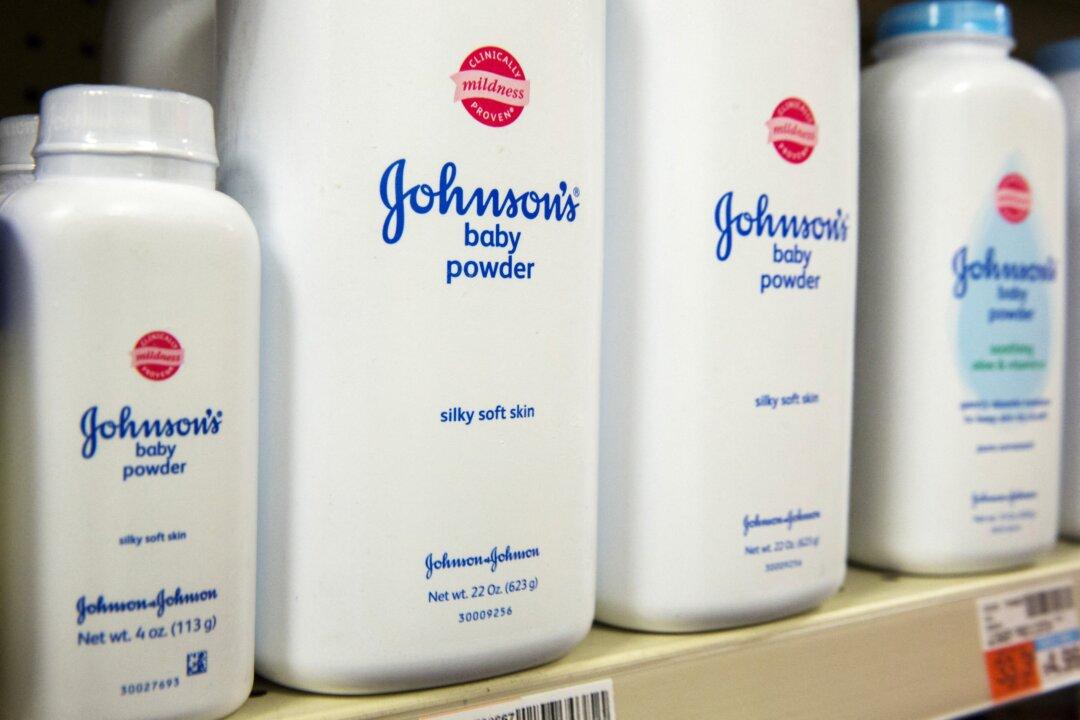Pharmaceutical giant Johnson & Johnson is facing a class action lawsuit stemming from claims that its baby powder and other talc products allegedly caused ovarian cancer in women.
The lawsuit, filed on June 17 in a New Jersey federal court, asks the company to pay for damages and medical monitoring—including preventative and diagnostic care such as regular testing—on behalf of women who have been diagnosed with, or might develop, cancer in the future, allegedly as a result of using the company’s baby powder and other talc products.




